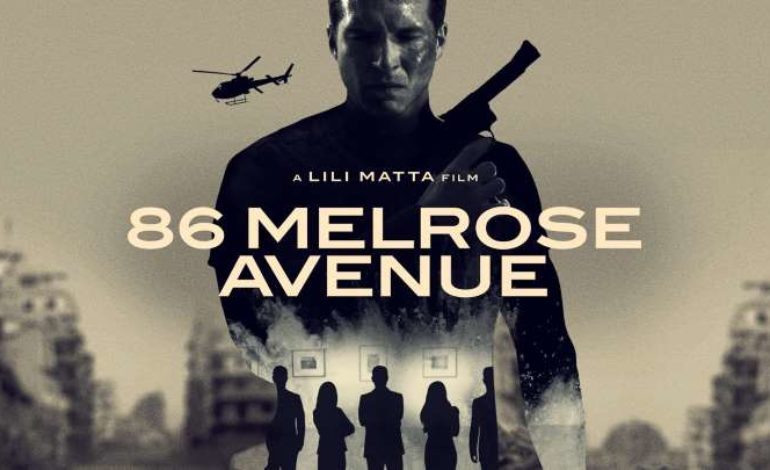

Guns have always been regarded as a controversial topic around the world. Are they good or bad? Are they beneficial or do people just want to assume they are an excuse to cause harm to others? Should you own one? The thoughts and opinions on the issue should never end and probably never will, especially since people have walked different paths that alter their worldview. Lebanese director, writer, and producer, Lili Matta, takes a dip on a serious note on how gun rights are taken advantage of at times and how trauma can affect our lives anytime in the future in 86 Melrose Avenue. Although the idea and heart was clearly shown in the film, it felt as if it lacked in skill with it’s exposition and editing but, it was an overall great experience.


Travis, played by Dade Elza, is a man on the run who stumbles upon an art gallery. There, Travis aims his gun at all the attendees and yells at them to hit the floor. We quickly are taken back an hour ago where the story develops as to why he would be in the run in the first place. Dade’s character comes home late to find his wife, Madeline (Kambra Potter), eating with another man, Dallas (Jake Red) whom we come to find out is an old friend of Madeline’s. She sets up another plate for her husband and already there can be some tension between the men. Dallas attempts to make conversation with Travis by asking if there were any stories he wanted to share with him from the war but Madeline quickly changes the subject. Already, Dallas notices the change and attempts once again where we notice Travis becoming upset (it seems some people just cannot take the hint and ask why people are bothered by them). The more Dallas blurts out his opinions about the war, Travis suddenly becomes aggressive and after a couple of punches, he reaches for the gun in a cabinet where he ends up firing right through Dallas’s chest. In shock, Travis immediately runs out of his home where he comes upon an art gallery on 86 Melrose Street.


As mentioned before, the theme of this film was highly influenced by war, especially hitting home for director Lili Matta. If not noticed, the other theme discussed might have us connect somewhat and not only fall in the same category as the film but trauma is in everyone. 86 Melrose Avenue gives you an understanding of how each individual person can trigger their traumas in an instant and cause anxiety attacks as well as feelings of sadness, frustration, and anger to name a few. It is a feeling of comfort how Matta communicates with her audience that although everyone may suffer from different traumas, whether big or small, they can be manageable with performing simple tasks such as writing, who calms down the art gallery reviewer, Cathy (Helen Kennedy), as she goes through an anxiety attack. Not just writing, but even for some, having someone around for support can help a huge amount and that can include therapist or therapy groups where one can relate more. Sadly, those who are not strong-willed believe there is no way out of their head may end up in unfortunate terms with themselves, like Travis who ends up taking his life. Just like someone once told me, “when it’s personal, it’s just as bad,” giving me an understanding that you just never know how people will react, feel, or deal with situations, so never belittle others’ problems.


Verdict of 2.5 out of 5.
While 86 Melrose Avenue’s editing may have fallen off a bit with jarring choices, it also wrapped up the film well enough where you can feel tension with the characters. One particular scene that stood out was the interrogation. Marine Sergeant Gunnery (John Marrs) had previously mentioned to Travis and another soldier how he wanted to scare off the prisoner to receive the information he wanted. Unfortunately, it did not go as planned which led Sergeant Gunnery to blast his brains, leaving Travis in confusion and distrust on his own people. Overall, the movie had great insight on different points of view, especially showing effects of what gun rights can cause in the wrong hands.
